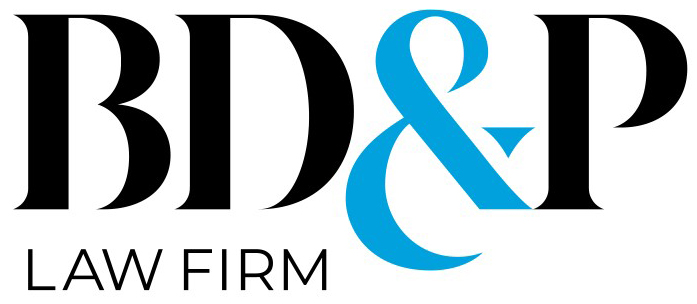
How Confidential is Confidential?
By Karen McPeak

Resolving a dispute through arbitration may offer parties confidentiality that cannot be found in the public court process. However, this confidentiality is often subject to disclosure obligations, such as requirements arising from law or from parties with a direct financial interest in the arbitration. This article discusses confidentiality issues in arbitrations involving public entities and litigation funders, and provides guidance on how to manage these issues and manage the parties’ expectations.
Confidentiality is an important, and frequently cited, advantage of resolving disputes by arbitration. Indeed, confidentiality provisions are often what attract many parties to commercial disputes to proceed through arbitration rather than the courts, where the litigation generally becomes public record.
Confidentiality clauses may be found in the arbitration agreement, or the rules governing the arbitration. For example, unless the parties agree otherwise, the ADRIC Arbitration Rules keep the existence of the arbitration confidential along with all communications, records, and decisions, subject to certain exceptions such as whether disclosure is required by law or to parties with a direct financial interest in the arbitration.[1] Such provisions are common; parties can agree to confidentiality provisions, but they cannot contract out of legal obligations requiring disclosure. So, how confidential are confidential arbitrations? This article discusses confidentiality issues in arbitrations involving public entities and litigation funders and some considerations for managing these issues and parties’ expectations.
Public Entities
Government Entities
Commercial contracts between a government entity and a private party may include arbitration clauses containing standard confidentiality terms, but such confidentiality provisions may not be enforceable. For example, when the Federal Government is a party to the arbitration, the Access to Information Act and the Privacy Act may apply to render the confidentiality provisions inoperative.
When considering the confidentiality of arbitral proceedings with a government entity, parties should understand the applicable legislative scheme and any information that may be subject to it. Parties should undertake this analysis before entering into an agreement to arbitrate or a contract containing a mandatory arbitration clause and determine whether expectations regarding confidentiality can be met or managed in the circumstances.
Public Companies
Public companies are subject to legislation which may override confidentiality provisions contained in arbitration agreements or governing procedural rules. Publicly owned companies have reporting requirements and various disclosure obligations, out of which they cannot contract, and which may limit the information that can be kept confidential. For example, securities legislation typically requires that a public company must disclose certain financial information and material changes affecting the company. These reporting obligations may require disclosure of aspects of an arbitration, including the identity of the parties, the amounts at issue, the parties’ respective positions, and the basis for their positions. Parties considering arbitration with a public company must consider what information may be subject to reporting and disclosure obligations, to avoid potential surprise disclosure and any unexpected erosion of the typical confidentiality benefits of arbitration.
Litigation Funders
In recent years, there has been a significant rise in third-party litigation funding to help curb the expense and risks of resolving disputes. A third-party funder is not a party to the litigation, but funds all or part of the costs for a fee or a share of the recovery. To make informed investment decisions, litigation funders require initial information regarding the dispute and ongoing disclosure regarding the proceeding, which may be contrary to arbitral confidentiality provisions.
While the terms of litigation funding agreements will typically include provisions of confidentiality, a party should consider: i) whether they need a separate confidentiality agreement or a non-disclosure agreement with the litigation funder; and (ii) whether they should advise the other party to the dispute of the involvement of the litigation funder in order to mitigate any claims that they breached confidentiality by disclosing aspects of the arbitration and the dispute to the litigation funder. In addition, litigation funders are often publicly traded companies and concerns regarding public company disclosure obligations may also apply to litigation funders, who may be required to disclose certain details regarding funded disputes.
Managing Issues of Confidentiality
Having regard to the examples set out above, there are various circumstances where the confidentiality provisions in an arbitration may be rendered inoperative. When evaluating the advantages of arbitration for dispute resolution, parties should be aware that the confidentiality may be limited in some situations.
To assist in mitigating these issues and avoid unhappy surprises that may arise during the dispute, a party might consider the following:
- Seek advice regarding any applicable legislation affecting disclosure and out of which a party cannot contract – both for themselves and their counterparty.
- Rather than using a boiler-plate confidentiality provision, draft a confidentiality clause to fit the unique circumstances of the parties.
- Determine whether the confidentiality provisions require an exception clause (i.e., for potential litigation funders, parent, or related companies etc.)
- Determine whether a separate confidentiality agreement or non-disclosure agreement is needed.
[1] ADRIC Arbitration Rules, Version 2, Effective 01 December 2016, rr. 1.2, 4.18.2, 4.18.4.
Karen McPeak is a litigation associate at Osler, Hoskin & Harcourt LLP. Karen maintains a broad corporate and commercial litigation practice, with experience in commercial litigation and dispute resolution.












